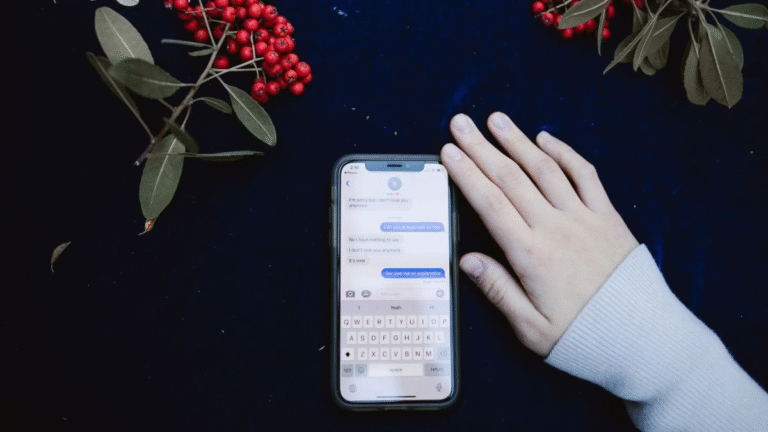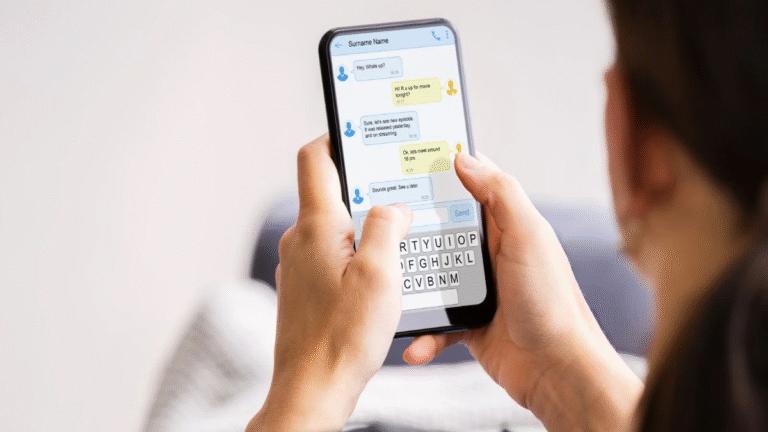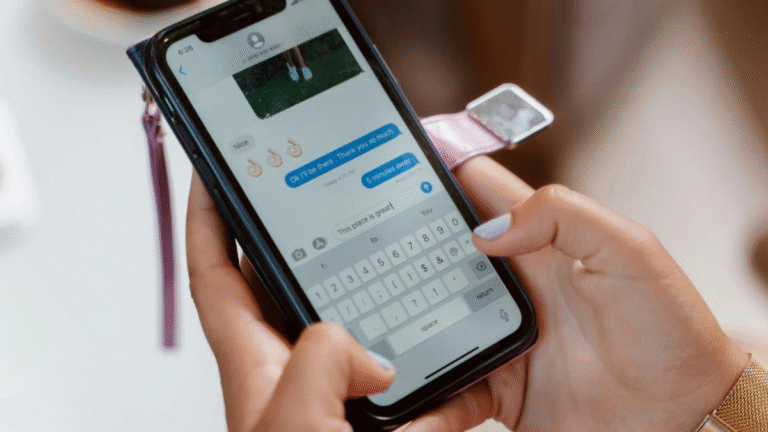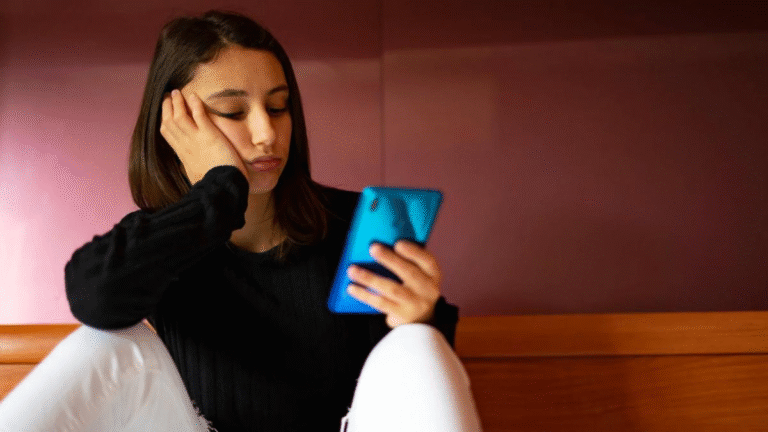One-Word Texts from Her: What Do They Really Mean?
You crafted the perfect message—witty, engaging, and personal. Feeling confident, you hit send, and the three little dots appear… only to vanish. Your phone buzzes, and you open the message, your heart skipping a beat, only to see it:
“Lol.”
Suddenly, your mind races with questions. Is she mad? Is she bored? Did my joke fail to amuse her? This single, seemingly insignificant word can send even the most confident individuals spiraling into overthinking. You’re not alone in this struggle. In our digital age, we all grapple with deciphering messages devoid of tone, body language, and context.
The most common misconception is that one-word texts always indicate rejection. While they can sometimes signify rejection, they often convey a completely different message. This article delves into the psychology behind short replies, explores the most prevalent reasons for their occurrence, and provides proven, actionable strategies to transform the conversation.
Understanding the Psychology of Short Texts
In-person interactions rely on hundreds of non-verbal cues, such as smiles, nods, and eye contact, to convey meaning. Texting, on the other hand, lacks these cues. A study published in Computers in Human Behavior reveals that the ambiguity inherent in digital communication often prompts our brains to fill in the gaps, and we tend to fill them with our worst fears. This cognitive distortion is known as negativity bias.
When you receive a “K” or “Fine,” your brain might immediately interpret it as a sign of anger or disinterest because it’s wired to detect potential threats.
However, the meaning behind one-word texts is highly context-dependent, influenced by timing and the sender’s personal communication style. It’s less about the word itself and more about the situation surrounding it.
Common Reasons for One-Word Texts (It’s Not Always You!)
Before jumping to conclusions, let’s consider the genuine reasons behind her seemingly curt responses. Imagine Maya and Ben. Ben had sent Maya a lengthy paragraph detailing his day, and she merely replied, “Nice.” Ben spent the subsequent hour convinced that he had failed to engage her. In reality, Maya was in a bustling subway car and had just enough time to acknowledge his message before her signal abruptly cut off.
Here are the most common reasons why people send one-word texts:
- She’s genuinely busy: this is the primary reason. She could be in a meeting, driving, at the gym, or engaged in a conversation with family. A short reply is a quick acknowledgment a way of saying, “I understand this, but I can’t give it my full attention at the moment.”
- Some people perceive texting as solely functional, primarily for making plans or sharing brief information. They prefer phone calls or face-to-face conversations for more profound connections. Her concise texts might simply be her natural communication style.
- The conversation naturally reached its end. Not every conversation requires an elaborate conclusion. Sometimes, a simple “Cool” or “Sounds good” is sufficient to close the loop. Pushing the conversation further can feel forced.
- She might be upset or annoyed. If her short reply follows a disagreement or a sensitive topic, it could be a passive way of expressing her frustration. Context is crucial in understanding her emotions.
- She’s Simply Not Interested: If you consistently receive low-effort, one-word texts regardless of how engaging your questions are, it could be a sign of disinterest. It’s a low-conflict way to gracefully end the conversation.
Proven Strategies to Re-engage Her (Backed by Psychology)
So, how do you respond without escalating the situation? The key is to remain calm and be strategic. Relationship expert Dr. John Gottman discusses “bids for connection”—small gestures to connect with your partner. A text message is a bid. The way you respond to her reply, even a brief one, is crucial.
- Don’t overreact or become passive-aggressive. Sending a sarcastic “…” or “?” will only create tension. Instead, always assume the best.
- Instead of asking “What’s wrong?”, change the topic to something more engaging. Ask an open-ended question that can’t be answered with a simple “yes” or “no.”
- Instead of: “Did you have a good day?”
- Try asking, “What was the most intriguing event that transpired in your day today?”
- Inject some humor into the situation. A well-timed, funny GIF or meme can instantly lighten the mood and break the tension. It’s a low-pressure way to re-engage her.
- Suggest a different platform. Acknowledging the limitations of texting demonstrates high emotional intelligence.
- Example: “Haha, you seem busy! Want to catch up on the phone later tonight?”
- Example: “Texting can be tough. Let’s talk about it when I see you on Friday.”
- Match Her Energy, Then Lead: Instead of sending a lengthy message, send a shorter and more relaxed one. If she responds positively, you can gradually increase the length and depth of the conversation.
Tools & Apps That Can Help
Improving communication isn’t just about texting. If you’re in a relationship, building a stronger foundation can help you navigate these small misunderstandings.
- Lasting: A science-based couples counseling app that guides you through relationship health sessions.
- Talkspace: Connect with a licensed therapist for online couples therapy to work on communication skills.
- Gottman Card Decks: A free app from The Gottman Institute with questions and ideas to spark deeper conversations and connection.
Expert Insights & Reliable Sources
Experts concur that digital miscommunication is a significant contributor to modern relationship anxiety. An article in Psychology Today emphasizes how the absence of nonverbal cues compels us to “project our own emotional states” onto the messages we receive.
Similarly, Verywell Mind points out that our attachment style significantly influences our interpretation of ambiguous texts; individuals with an anxious attachment style are more likely to perceive a brief text as a sign of rejection.
Dr. Julie Schwartz Gottman suggests that in our digital age, characterized by texts and emails, we must be more direct and explicit in expressing our emotions and needs. This is because the very nature of technology deprives us of the cues that we would typically rely on to communicate effectively.
Conclusion
One-word texts are rarely as straightforward as they appear. They might reflect a hectic schedule, a unique communication style, or, unfortunately, a lack of interest.
However, your response holds the power to change the situation. By remaining composed, carefully analyzing the context, and employing strategic communication, you can overcome overthinking and foster a genuine connection.
FAQ Section
Absolutely not. More often than not, it’s a sign of distraction or busyness. The key is to look for patterns. An occasional short text is normal, but consistent one-word replies to every message may indicate a deeper issue.
If her responses remain consistently brief despite your attempts to engage her with thought-provoking, open-ended questions, it’s a clear sign of disinterest. In such cases, it might be prudent to redirect your energy towards other avenues.
Yes, for many couples. Apps like Talkspace provide access to licensed professionals who can teach you and your partner effective communication strategies and help you understand each other’s styles, which can resolve issues that show up in things like texting.
Keep your texts engaging and easy to respond to. Ask open-ended questions, share interesting things about your day (with a question for her), and use humor. Also, know when to end a conversation naturally instead of forcing it to continue.
Avoid a direct confrontation over text. Instead, bring it up casually in person or on a call. You could say something lighthearted like, “I can never tell if you’re a super-focused texter or just really busy during the day!” This opens the door for a conversation without accusation.





![How to Text Your Ex Without Seeming Desperate [4 Rules]](https://coupleuni.com/wp-content/uploads/2025/08/PHOTO-2025-08-24-13-07-10-768x432.png)

